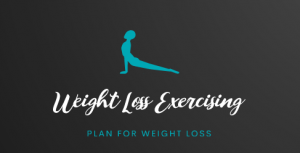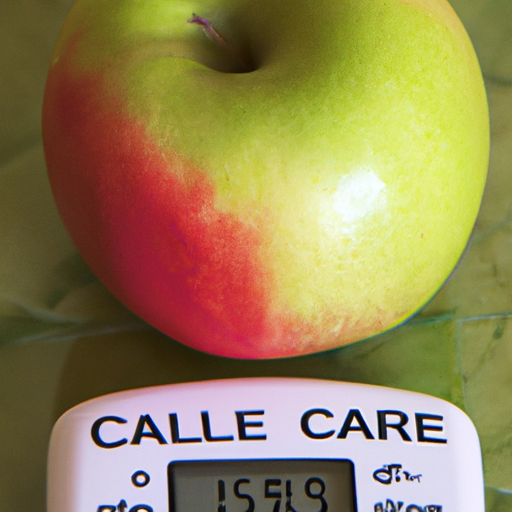Ever wondered how many calories you should be consuming daily in order to shed off those extra pounds? Look no further, because we’ve got the answer! In this article, we’ll explore the science behind calorie consumption and weight loss, giving you the valuable information you need to reach your weight loss goals. By understanding the relationship between calories and weight, you’ll be able to make healthier choices and create a sustainable path towards a healthier, slimmer you. Say goodbye to guesswork and hello to a clearer understanding of what it takes to shed those unwanted pounds once and for all.
Review contents
Factors Affecting Calorie Intake
Basal Metabolic Rate (BMR)
The basal metabolic rate (BMR) refers to the number of calories our bodies need to perform basic functions while at rest. Factors such as age, gender, and body composition play a significant role in determining our BMR. As we age, our BMR generally decreases, making it crucial to adjust our caloric intake accordingly.
Physical Activity Level
The amount of physical activity we engage in on a regular basis also affects our calorie intake. Those with a more active lifestyle may require more calories to fuel their bodies, while sedentary individuals may need to consume fewer calories.
Age
Age is an essential factor to consider when calculating calorie intake for weight loss. As we age, our metabolism tends to slow down, and less energy is required to maintain bodily functions. To achieve weight loss goals, adjustments to calorie intake should be made with age in mind.
Height and Weight
Height and weight play a significant role in determining calorie needs. Taller individuals generally require more calories to maintain their weight, while individuals with a higher weight may need to consume fewer calories to lose weight.
Body Composition
Body composition, including the ratio of fat to lean muscle mass, impacts calorie needs. Muscle burns more calories at rest compared to fat, so individuals with a higher percentage of lean muscle mass may require more calories to maintain their weight.
Gender
Gender also affects calorie intake requirements. Men generally have a higher muscle mass and higher BMR compared to women, resulting in a higher caloric need.
Overall Health
The state of our overall health can impact our calorie intake for weight loss. Certain health conditions may require modifications to the recommended caloric intake. It is essential to consult with healthcare professionals or dietitians to assess specific health needs.
Weight Loss Goals
Weight loss goals determine the necessary caloric deficit required to achieve them. A calorie deficit occurs when we consume fewer calories than our bodies need, resulting in weight loss. Determining a realistic and sustainable calorie deficit is important for long-term success.
Metabolism
Metabolism refers to the chemical processes in our bodies that convert food into energy. Some individuals naturally have faster metabolisms, allowing them to burn calories more efficiently. Others may have slower metabolisms, requiring adjustments to their calorie intake for weight loss.
Genetics
Genetic factors can influence how our bodies process and store calories. Some individuals may have a genetic predisposition to higher or lower calorie needs. While genetics play a role, lifestyle choices and habits still have a significant impact on weight loss.
Calculating Caloric Needs
Calorie Deficit for Weight Loss
To lose weight, an individual generally needs to create a calorie deficit. This deficit can be achieved by consuming fewer calories than their body needs. A safe and effective rate of weight loss is considered to be 1-2 pounds per week.
Estimating BMR
To determine the number of calories needed to maintain weight, it is necessary to estimate the basal metabolic rate (BMR) using age, gender, height, and weight. Numerous online calculators and formulas can provide an estimate of an individual’s BMR.
Determining Activity Level
After estimating BMR, it is essential to factor in physical activity level. Sedentary individuals may multiply their BMR by a small activity factor, while active individuals may use a higher activity factor to calculate their total daily energy expenditure (TDEE).
Adjusting for Weight Goals
Depending on weight loss goals, calorie intake must be adjusted. To create a calorie deficit, individuals should aim to consume fewer calories than their TDEE, while still meeting their nutrient needs.
Gender-Specific Calculations
Since men and women have different calorie needs, gender-specific calculations may be necessary. Online calculators or consulting with healthcare professionals can provide personalized recommendations.
Online Calculators
Online calculators offer a convenient way to estimate calorie needs for weight loss. These calculators typically consider age, gender, height, weight, and activity level. However, they may provide a general estimate and should not substitute personalized guidance from healthcare professionals.
Consulting a Dietitian
For accurate and personalized advice, consulting a registered dietitian is highly recommended. Dietitians can assess individual needs, help calculate calorie intake, and provide guidance on balancing a nutrient-rich diet.
Monitoring Progress
Regularly monitoring progress is important to ensure the chosen calorie intake aligns with weight loss goals. Tracking weight, body measurements, and food consumption helps identify any necessary adjustments.
Adjusting Caloric Intake
If weight loss plateaus or progress is slower than anticipated, it may be necessary to adjust caloric intake. Gradual changes to calorie intake can help avoid drastic fluctuations and promote sustainable weight loss.
Recommended Calorie Intake for Weight Loss
Safe and Effective Rate of Weight Loss
A safe and effective rate of weight loss is generally considered to be 1-2 pounds per week. This rate allows for sustainable changes in body composition while minimizing the risk of muscle loss or nutrient deficiencies.
Mathematical Formulas
There are various mathematical formulas available to estimate calorie needs for weight loss, such as the Harris-Benedict equation or Mifflin-St. Jeor equation. These formulas utilize factors like age, gender, height, weight, and activity level to provide an estimate of calorie needs.
National Dietary Guidelines
National guidelines, such as those provided by health organizations, may offer recommendations for calorie intake based on age, gender, and physical activity level. These guidelines can be used as a starting point for weight loss goals.
Slow and Steady Approach
A slow and steady approach to weight loss is often more sustainable than rapid, drastic changes. Gradual caloric deficits and consistent progress promote healthy habits and long-term success.
Individual Differences
Every individual is unique, with different metabolism, body composition, and lifestyle factors. Calorie intake and weight loss strategies should be tailored to personal needs and preferences.
Tracking and Adjusting
Regularly tracking food intake, body measurements, and other relevant factors can help identify the need for adjustments to calorie intake. Monitoring progress and making necessary changes ensures that weight loss goals are met effectively.
Importance of Balanced Nutrition
Macronutrient Distribution
Balanced nutrition involves proper distribution of macronutrients, namely carbohydrates, proteins, and fats. A well-balanced diet ensures that the body receives all essential nutrients for optimal function while promoting weight loss.
Protein Intake
Adequate protein intake is crucial for weight loss, as it helps preserve lean muscle mass and promotes satiety. Including protein-rich foods in meals and snacks can aid in reaching weight loss goals.
Fiber Intake
Fiber plays a vital role in weight loss as it contributes to feelings of fullness, aids in digestion, and supports overall gut health. Foods high in fiber, such as fruits, vegetables, and whole grains, should be included in a balanced diet.
Healthy Fats
Healthy fats, such as those found in nuts, seeds, avocados, and olive oil, are an important part of a balanced diet. They provide essential fatty acids, promote satiety, and support overall health.
Vitamins and Minerals
A well-balanced diet should also include a variety of foods rich in vitamins and minerals. These micronutrients are essential for overall health, immune function, and energy production.
Balancing Nutrient-Rich Foods
Weight loss should not only focus on reducing calories but also on maximizing nutrient intake. Prioritizing nutrient-rich foods, such as fruits, vegetables, lean proteins, and whole grains, promotes overall health and long-term weight management.
Avoiding Restrictive Diets
Restrictive diets that excessively limit calorie intake or eliminate entire food groups may lead to nutrient deficiencies and have an adverse impact on overall health. A balanced approach to nutrition is key to sustainable weight loss.
Long-Term Sustainability
Weight loss is a journey that requires long-term commitment and sustainable habits. Balancing nutrient intake, including a variety of foods, and making mindful eating choices contribute to successful and lasting weight loss.
Health Benefits of Balanced Nutrition
Following a balanced nutrition plan not only supports weight loss but also offers numerous health benefits. It can reduce the risk of chronic diseases, improve digestion, enhance energy levels, and promote overall well-being.
Potential Challenges and Considerations
Psychological Factors
Weight loss can be influenced by various psychological factors. Emotional eating, stress, and body image concerns may impact calorie intake and overall progress. Addressing these factors through mindfulness techniques or seeking professional help can be beneficial.
Nutrient Deficiencies
Severe caloric restriction or eliminating food groups may lead to nutrient deficiencies. It is crucial to create a calorie deficit while maintaining a balanced diet to ensure adequate nutrient intake.
Social Situations
Social situations, such as dining out or attending gatherings, can pose challenges to maintaining a calorie deficit. Navigating these situations by making mindful choices, planning ahead, or seeking support from others can help overcome such challenges.
Hormonal Changes
Hormonal changes, such as those experienced during menstruation or menopause, can influence appetite and calorie needs. Recognizing and adjusting to these changes is important for successful weight loss.
Sleep and Stress
Lack of sleep and high levels of stress can impact appetite, food choices, and overall calorie intake. Prioritizing adequate sleep and implementing stress-management techniques can support weight loss efforts.
Plateaus
Weight loss plateaus, where progress slows or halts, can be demotivating. Adjusting calorie intake, incorporating different exercises, or seeking advice from professionals can help break through plateaus.
Physical Limitations
Certain physical limitations or health conditions may affect an individual’s ability to engage in certain types of physical activity. Alternative activities or modifications can be made to accommodate these limitations while supporting weight loss.
Medical Conditions
Certain medical conditions may require specific dietary considerations or adjustments to calorie intake. Consulting healthcare professionals, such as dietitians or doctors, is crucial for safe weight loss management.
Eating Disorders
Individuals with a history of or susceptibility to eating disorders should approach weight loss with caution. It is essential to seek professional guidance and support to ensure a healthy and balanced approach.
Consulting Healthcare Professionals
When faced with challenges or specific health considerations, it is always advisable to consult healthcare professionals. They can provide personalized guidance, address individual concerns, and help develop safe weight loss strategies.
The Role of Regular Exercise
Enhanced Caloric Deficit
Regular exercise can contribute to creating a larger caloric deficit, supporting weight loss efforts. Combining exercise with a balanced diet maximizes calorie burn and promotes overall health.
Improving Body Composition
Exercise, particularly strength training, helps build lean muscle mass and improve overall body composition. This leads to a higher basal metabolic rate and increased calorie burn even at rest.
Boosting Metabolism
Exercise boosts metabolism, allowing the body to burn more calories throughout the day. Combining cardiovascular exercises with strength training is generally recommended for optimal results.
Types of Exercise
There are various types of exercises to choose from, including cardiovascular activities like running or cycling, strength training, and flexibility exercises like yoga. Variety and enjoyment in physical activity are key to long-term adherence.
Combining Cardiovascular and Strength Training
A combination of cardiovascular exercises to burn calories and strength training to build muscle is an effective approach to weight loss. Both types of exercise have unique benefits and work synergistically to support overall fitness.
Setting Realistic Goals
Setting realistic exercise goals is essential for sustainable weight loss. Gradually increasing the duration and intensity of workouts while allowing for rest and recovery promotes healthy habits and prevents burnout.
Progressive Overload
Progressive overload, gradually increasing the demands placed on the body during exercise, helps stimulate further adaptations and calorie burn. This can be done by increasing weights, reps, or duration of workouts over time.
Listening to Your Body
Listening to your body’s signals, such as fatigue or discomfort, is important for injury prevention and overall well-being. Respect your body’s limits and modify exercises as necessary.
Finding Enjoyment in Physical Activity
Finding physical activities that you enjoy increases the likelihood of long-term adherence. Whether it’s dancing, hiking, or playing a sport, incorporating activities that bring you joy into your exercise routine helps maintain motivation and consistency.
Monitoring and Adjusting Caloric Intake
Food Journaling
Keeping a food journal can help increase awareness of eating habits and calorie intake. Recording meals and snacks allows for self-reflection and identification of areas for improvement.
Nutrition Labels
Reading nutrition labels provides valuable information about the calorie content of packaged foods. Being mindful of portion sizes and ingredients helps make informed choices and manage calorie intake.
Digital Tracking Apps
Digital tracking apps make it easy to monitor calorie intake and track progress. These apps often provide databases of foods with their nutritional information, making it convenient to stay on top of calorie goals.
Noom’s Calorie Tracker
Noom’s calorie tracker is a digital tool designed to promote mindful eating and create sustainable habits. It helps individuals track and analyze their calorie intake, making it one of the many options available for monitoring progress.
Adjusting for Plateaus
If weight loss plateaus occur, adjusting caloric intake may be necessary. Reducing calorie intake slightly or increasing physical activity can help break through plateaus and continue progress.
Creating Sustainable Habits
Caloric intake should be adjusted to create sustainable habits that can be maintained in the long term. Making gradual changes and incorporating nutrient-rich foods into meals promotes a balanced diet and avoids drastic restrictions.
Gradual Increases in Caloric Intake
After reaching weight loss goals, gradually increasing caloric intake to maintenance levels is important for weight maintenance. Rapidly increasing calorie intake may lead to weight regain, while gradual adjustments support long-term success.
Maintenance Phase
Entering a maintenance phase after reaching weight loss goals involves finding a balance between calorie intake and physical activity. Monitoring progress and making adjustments as needed ensures weight is maintained effectively.
Staying Mindful
Throughout the weight loss journey, staying mindful of calorie intake, portion sizes, and food choices is crucial. Being aware of personal triggers or emotional eating patterns helps maintain progress and prevent weight regain.
Risks of Extreme Caloric Restriction
Negative Impacts on Metabolism
Extreme caloric restriction can slow down the metabolism, making weight loss more challenging. Severely limiting calorie intake may signal the body to conserve energy, resulting in a diminished metabolic rate.
Muscle Loss
Severe caloric restriction can also lead to muscle loss. This can have a negative impact on overall body composition and metabolic rate, as muscles are metabolically active tissues.
Nutrient Deficiencies
Extreme caloric restriction or eliminating entire food groups can lead to nutrient deficiencies. Essential vitamins, minerals, and macronutrients may be lacking, which can impair overall health.
Gallstones
Rapid weight loss resulting from extreme caloric restriction can increase the risk of developing gallstones. Gallstones are small, hardened deposits formed in the gallbladder, and they can cause severe abdominal pain and other complications.
Menstrual Irregularities
Women may experience menstrual irregularities, including amenorrhea (absence of periods), due to extreme caloric restriction. It is important to maintain a balanced calorie intake to support hormonal balance.
Hormonal Imbalances
Severe caloric restriction can disrupt hormonal balance, impacting various bodily functions. Hormonal imbalances can affect metabolism, appetite, energy levels, and overall well-being.
Increased Risk of Disordered Eating
Extreme caloric restriction can increase the risk of developing disordered eating patterns or eating disorders. It is important to approach weight loss with a focus on health and balanced nutrition.
Loss of Focus and Energy
Restrictive diets can lead to fatigue, lack of focus, and reduced energy levels. Providing the body with enough fuel in the form of calories ensures optimal physical and mental performance.
Weakened Immune System
Extreme caloric restriction may weaken the immune system, making individuals more susceptible to infections and illnesses. A balanced diet that meets nutrient needs helps support a strong immune system.
Final Thoughts
Personalization and Individual Variation
Everyone’s weight loss journey is unique, and individual variation plays a significant role. It is important to personalize calorie intake, exercise routines, and dietary choices to meet personal needs and preferences.
Seeking Professional Guidance
When embarking on a weight loss journey, it is advisable to seek guidance from healthcare professionals, such as registered dietitians or doctors. They can provide personalized advice, address specific concerns, and ensure a safe and effective approach.
Long-Term Lifestyle Changes
Successful weight loss involves making long-term lifestyle changes rather than relying on quick fixes. Embracing a balanced diet, regular exercise, and mindful habits is key to maintaining weight loss.
Balancing Weight Loss and Overall Health
Weight loss should not compromise overall health or well-being. Prioritizing nutrient-rich foods, exercise, and self-care ensures a holistic approach to weight loss.
Celebrating Non-Scale Victories
Weight loss is not solely determined by numbers on a scale. Celebrating non-scale victories, such as increased energy levels, improved mood, and better sleep, helps maintain motivation and a positive mindset.
Building a Support System
Having a support system that encourages and motivates during the weight loss journey is crucial. Whether it’s friends, family, or online communities, sharing experiences and seeking support can make the process more enjoyable.
Staying Motivated
Maintaining motivation throughout the weight loss journey can be challenging. Setting realistic goals, celebrating achievements, tracking progress, and finding enjoyment in healthy habits help stay motivated.
Embracing the Journey
Weight loss is a journey that requires patience, perseverance, and self-reflection. Embracing the process rather than focusing solely on the end goal promotes personal growth and a positive relationship with food and exercise.
Maintaining a Healthy Mindset
A healthy mindset is essential for successful weight loss. Practicing self-compassion, challenging negative beliefs, and focusing on overall well-being rather than perfection promotes a positive mental outlook.
Self-Care and Self-Compassion
Engaging in self-care practices and cultivating self-compassion play a significant role in a holistic approach to weight loss. Prioritizing mental and emotional well-being supports sustainable habits and long-term success.



























